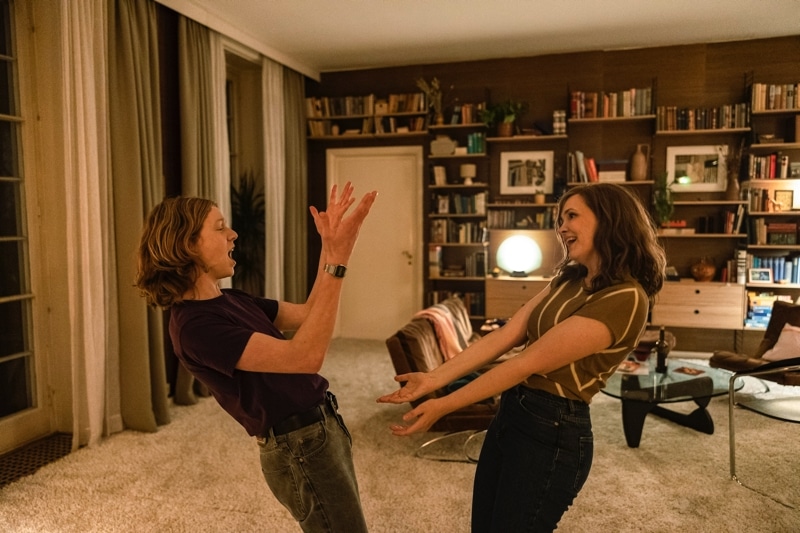



Dir.: Sonja Heiss; Cast: Camille Loup Moltzen, Arsseni Bultmann, Merlin Rose, Kolja Koddenbrock, Leevi Tjelle Hohlein, Pola Geiger, Laura Tonke, Devid Striesow; Germany 2023, 116min.
In her expansive drama focusing on the development of post-war German child psychiatry from 1974 onwards, Sonja Heiss bites off far more than she can chew and runs out of time in the final act.
Based on the 2013 autobiographical novel of Joachim Meyerhoff, the film’s opening scene, and far the most intriguing part, sees seven-year old Josse (Moltzen) being teased mercilessly by teenage brothers Philipp (Koddenbrock) and Patrick (Hohlein).
Josse’s father Richard (Striesow) is the director of a huge psychiatric clinic in the north of Germany and lives with his wife Iris (Tonke) and family on the grounds of the institution. The teenage Josse (Bultmann) Josse is close to both his parents, and spends time with his father’s patients, often feeling more at ease in the clinic than at home his brothers due to their aggressive behaviour. A childhood friend Marlene (Geiger) comes back into his life when she is “parked’ by her parents with Richard and Iris, and later commits suicide.
Josse tries in vain to work through the reasons for her suicide with his father but Richard simply states that she wanted to die, and he was unable to help. This episode alienates Josse even more from his father, who by now is cheating on his wife with his secretary, Iris retreating into the world of her youthful adventures in Italy. Later, Josse’s brother and father will experience tragedy but this episode is curiously shown as part of his ‘lessons in life’.
There seem to be no borders between Richard’s role as a director of the institution and his private life: he and Josse “talk shop” about the patients’ case histories, with Josse humouring the sick he encounters on the grounds, playing the part of his father as a benevolent bystander.
DoP Manuel Dacosse brings an epic quality to the proceedings with his impressive images of life in the hospital and the trials and tribulations of family life, including the very unholy Christmas celebrations which culminate with Iris using the electric carving knife as a weapon of destruction, not just to serve the turkey.
As is often the case in German cinema, Heiss and her co-writer adopt a rather didactic approach to the material which rather spoils the overall fluidity in this worthwhile study that charts the much-needed changes in German psychiatry in the latter part of the 20th century. AS
OPENING FILM OF THE GENERATION STRAND | BERLINALE 2023